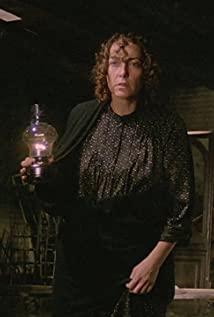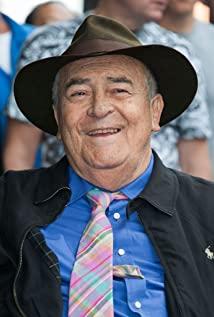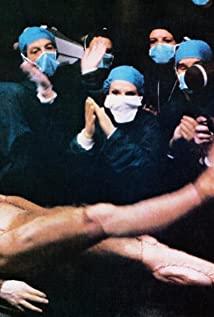The relationship between movies and love is really not that much - not any movie with two men and one woman is a love movie - it mainly discusses/shows the experience and influence of people who went to Africa to seek rescue after the war.
existential crisis
The opening scene in the film made me think I had clicked the wrong link: it started with a series of scenes of New York city life: skyscrapers, bars, shops, dancing people. All singing and dancing are peaceful.
These pictures are the life abandoned by the protagonist: Port is a composer, Kit has written a script but it is not well received, Turner is in business but the main business is to hold parties on long island every day.
Port told Customs that his plan was no plan, he wanted to stay here for a few years, and probably had no plans to go back.
There is this dialogue at the beginning:
Tunner: We were definitely the first tourists after the war.
Kit: We are not tourists, we are travelers.
Tunner: What's the difference?
Kit: Tourists are the kind of people who want to go home as soon as they arrive, and travelers may never go back.
Tunner: You mean, I'm a tourist.
Kit: Well, and I'm half tourist, half traveler.
Port's wife Kit may not have come up with the plan to come to Africa, so she says she's half tourist and half traveler. And their friend Turner came after hearing about the plan, so in Kit's eyes he was a tourist who wanted to go home when he came - although Turner wasn't exactly - anyway, the three main characters were somewhat tired of post-war New York life, hoping to achieve some purpose other than tourism in Africa, perhaps to seek some kind of meaning.
Before his death, Port discovered or finally realized the meaning of his life. He said that the meaning of his life was for his wife Kit: to bring her to Africa and do everything possible to save their marriage.
In the end, Kit accepted the fact that people are bound to die, but Kit's insight was not what she said, but the old man in the cafe who helped Kit sum it up:
“Because we don't know when we will die, We get to think of life as an inexhaustible well. Things happen only a certain number of times, and a small number really. How many times will you remember an afternoon of your childhood and afternoon so deeply a part of you that you can't be without it? Maybe four or five times, perhaps not even that more. How many times you will watch the full moon rise? Perhaps twenty. Yet it all seems limitless.
The repetition of things in life - be it the long island parties or the full moon - always gives us the illusion that life is infinite. But the old man said, how many of those afternoons we thought we could waste at will when we were young, how many can we remember now? So he said Things happen only a certain number of times, and a small number really.
colonial imagination
The period after the war was a period when a large number of former colonial countries sought independence, and a large number of African countries became independent during this period. The three protagonists are Americans, who are not old nineteenth-century African colonizers—the French and British in the film are—they are spectators who have too much money to spend trying to think about the meaning of life, but they are The identity of outsiders and the interaction of local people will inevitably lead to the opposition of domination-ruled, advanced civilization-primitive civilization, advanced-backward.
Three aspects are very obvious:
1. Language
There are at least three languages in the film: the language of the English-speaking wealthy tourists, the language of the French colonists, and the local language. English is spoken among tourists, but also with customs and officers. French with the dealer, with the inn maid, with the ticket seller. The local language is completely untranslated in the film, and their words are unknowable to the three protagonists and unknowable to the audience. It is not just the language that is unknowable, but Africa itself.
The purpose of the people who come here, whether it is the colonists or the three protagonists, has nothing to do with Africa itself. The colonists want to plunder resources, and the three protagonists want to think about the meaning of life. They don’t need to understand Africa, let alone the local language—speaking French—a language of the colonists—is enough.
2. Civilization
The three protagonists travel from North Africa all the way through the Sahara to South Sudan. In the movie, North Africa is the place with the most "Western civilization" in Africa, while South Sudan is the place with the least Western civilization. You can see this in the mirrors, which start with mirrors all over the room, and end up in the little attic where Kit has only a palm-sized mirror to look at himself.
However, there is no real "civilization" anywhere, only the civilization familiar to the three protagonists and the audience is missing.
3. People
Aside from the fact that we don’t understand what the locals are saying, the images of the locals are also very consistent with the colonial imagination: they are sexually attractive (attracting the male protagonist and forcing the female protagonist to be attracted), they are not hygienic (eating strange things), they are thieves (robbing the hero's wallet, mercenary and giving enough money to get a car).
By expressing these, the director shows one thing: although the three protagonists are not colonizers, and although the three protagonists have no ill will towards the locals, the influence of the three Americans on the locals-imposing their own language, thinking of themselves The civilization of the more advanced, dwarfed or criminalized the natives - no essential difference from the colonists.
View more about The Sheltering Sky reviews











